Nay Pyi Taw, Myanmar, 22 Jumadil Awal 1437/1 March 2016 (MINA) – Than Kyi — a 95-year-old who lives on the fringes of Myanmar’s new capital — says she is just one of many who had given up hope of there ever being justice for ordinary people in Myanmar.
For years, farmers such as Than were the victims of land grabs for commercial development, with the ruling Union Solidarity and Development Party (USDP) party, the government, the military, business tycoons and regional authorities all reported to have played their part, Anadolu Agency quoted by Mi’raj Islamic News Agency (MINA) as reporting.
But now, with Aung San Suu Kyi’s opposition National League for Democracy (NLD) set to take its seats in parliament, many live in new hope that a change in rule will lead to long promised advancements in law, access to justice and other reforms.
Talking to Anadolu Agency in February from her new home just outside of Nay Pyi Taw, Than says that for 63 years her family had ploughed the 5.4 acres of farmland on which they lived, but in 2006 the then junta announced the country’s capital would be moved from Yangon, the largest commercial city in Myanmar, to the new city around 200 miles north.
Also Read: Pakistan Condemns Israeli Settler Attacks in West Bank, Al-Aqsa Storming
Land was confiscated to make way for the development, for which farmers were offered just 120,000 Kyats ($100) an acre — what Than says was just a third of the value of her yearly harvest and not even enough to buy an ox.
“We had no way of complaining about what we saw as totally unfair compensation at that time,” she says, adding that she herself had worked to convert that land from forest at the age of 22.
Developers offered a period of amnesty during which farmers were told they could stay and grow crops, but then the eviction notices arrived.
Than admits that she was terrified, but with nowhere else to go she decided to fight back, demanding that she receive a higher price for her land.
Also Read: China Criticizes US-Drafted UN Gaza Resolution as Vague, Abstains from Vote
For the next few months, Than attended court several times, her children carrying her to the sessions as her age has left her unable to walk or stand for longer than five minutes.
With word spreading of the frail old lady taking a government that many saw as a junta proxy to task, help, however, was soon at hand.
Local media had learned of the case, criticizing the local authority for what they saw as victimization.
What’s more, reports had revealed that the USDP had started to sell the confiscated land at 50,000,000 Kyats an acre to private investors.
Also Read: Former Bangladesh PM Sheikh Hasina Sentenced to Death
Nay Pyi Taw Development Commission eventually settled on granting her a new plot of land in early 2015, while giving her an extra 1,000,000 Kyats for each of her 5.4 acres — still far below the market price.
Than Kyi shrugs her shoulders and sighs.
“I know that’s all I, as an ordinary person, could get from them [the authority],” she says.
From 1962 to 2011, Myanmar was ruled by an oppressive military junta in which generals suppressed almost all dissent and stood accused of gross human rights abuses, prompting international condemnation and sanctions.
Also Read: Pakistan Declares State of War After Car Bomb Incident
The years of dictatorship, however, were terminated by a 2010 general election widely regarded as rigged.
Power was transferred to a new semi-civilian government led by the USDP and reformist President Thein Sein in 2011, and with that transfer came new promises.
On Aug. 31, 2011, Thein Sein — a senior leader in the former junta — told the country’s National Assembly that if the people could live their lives under the protection of the law, then they would become responsible individuals.
Activists and human rights lawyers now say that that protection failed to arrive – with ordinary people in particular left at the mercy of corrupt local authorities and their friends in the business community.
Also Read: Jakarta Hosts Gala Dinner for World Peace Forum Delegates
“Looking back over the past five years, its easy to see how poor the government’s performance has been,” Robert San Aung, a Yangon-based lawyer, tells Anadolu Agency.
“Thein Sein has completely failed to fulfill his commitment that every citizen would have equal rights under the protection of the law,” he says.
“And that’s a key reason why people didn’t vote for his party in the [2015] election.”
The Nov. 8 vote saw the NLD win with a landslide, but analysts have claimed it was not necessarily a vote for the NLD, but rather a vote against the military regime — of which the USDP has since been recognized as a proxy.
Also Read: Indonesian Minister Urges Synergy Between Wasathiyah Islam and Chinese Wisdom
“The loss was [so large] because people voted for what they have wanted for a long time,” ex-Lower House speaker Shwe Mann — ousted from his role as USDP chairman last year amid a power struggle with Thein Sein — has told Anadolu Agency.
It was a vote to relinquish all control from the junta. Of particular grievance is the land grabs.
According to a 2015 report by London-based international rights group Global Witness, 5.3 million acres of farms and other land were seized by investors since 2013, with the USDP, the government, the military, business tycoons and regional authorities all grabbing their share.
This occurred even though a parliamentary commission set up in late 2012 to investigate such seizures suggested the government return 302,201.762 acres to its original owners.
Also Read: New Delhi Covered in Toxic Smog: Residents Say ‘We Can Hardly Breathe’
According to 88 Generation students’ Peace and Open Society — a pro-democracy movement known for activism against the country’s military junta — Thein Sein’s administration has since claimed it returned 141,154.602 acres, however it is still unclear if those lands were returned to their original owners.
In 2011, Robert San Aung founded the law firm Hygienic Legal Clinic to assist those fighting illegal land confiscation and other abuses by Myanmar’s military and companies close to the country’s former ruling generals.
He says that his business has since accepted thousands of requests for help from ordinary people, in particular farmers whose land has been confiscated without or with little compensation.
“We are trying our best to help ordinary people, but its too difficult to bring them justice due to the crumbling and corrupt justice and administration system,” he tells Anadolu Agency.
Also Read: Boat Carrying 100 Rohingya Migrants Capsizes in Malaysian Waters
He describes the system as an auction, where the biggest bribe wins. “All the people want is fair play,” he underlines.
With Aung San Suu Kyi’s NLD due to take power at the end of March, many are hoping her party may provide some long overdue legal recourse.
Suu Kyi’s party members, however, have acknowledged that the country still lacks a rule of law that can bring justice and protection to those at grass roots level.
“Fighting corruption by reforming judiciary and administrative system is the key issue,” NLD spokesperson Nan Khin Htwe Myint told Anadolu Agency this month, adding that the battle will be difficult, “but not impossible.”
Also Read: Dozens Killed in RSF Drone Strike on Sudanese Village During Funeral
But the biggest battle is to overcome the fight that the previous government clearly lost.
The most important thing is not to “lose people’s trust,” she underlines. (T/P010/R04)
Miraj Islamic News Agency (MINA)
Also Read: International Red Cross Calls for Safe Corridors for Civilians in Sudan





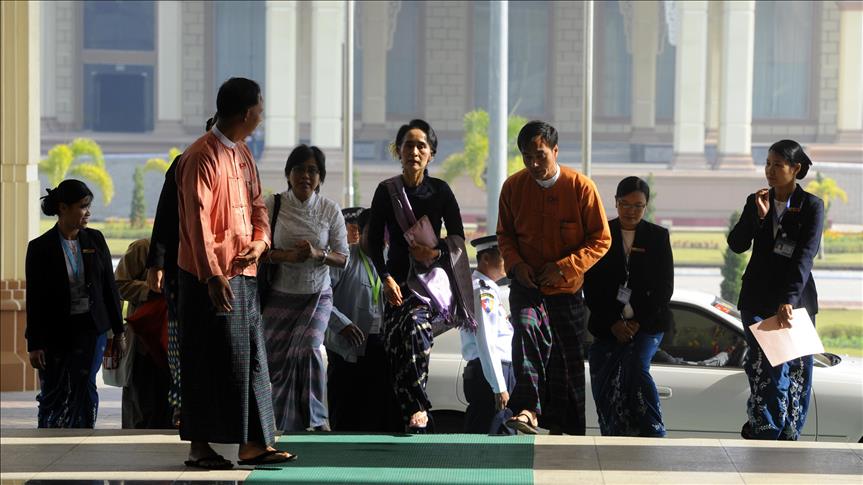



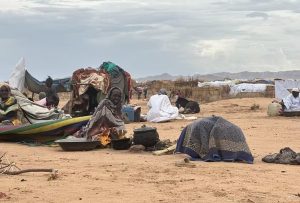
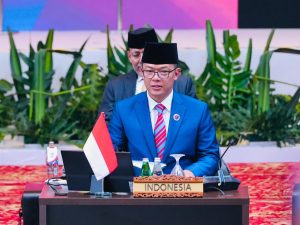



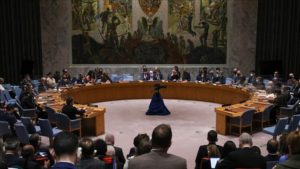

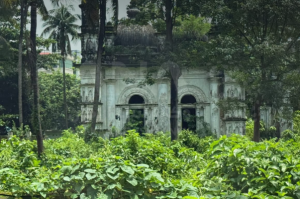
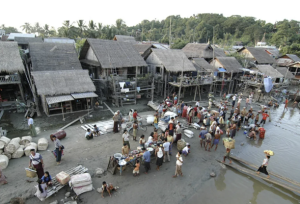
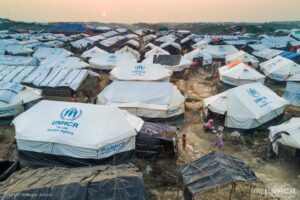

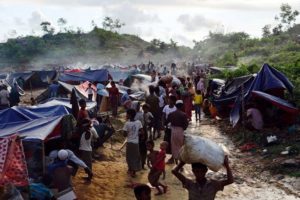
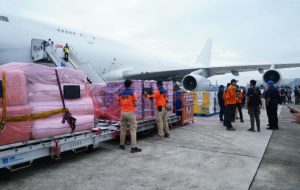













 Mina Indonesia
Mina Indonesia Mina Arabic
Mina Arabic